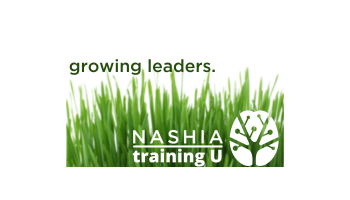
RECORDINGS & MATERIALS BELOW
2025 BRAIN LINKS' WEBINAR TRAINING SERIES!
Using Case Studies to Highlight Best Practice and Improve Outcomes in Brain Injury
This series is designed for Service Providers across all Systems of Support including Mental Health, Substance Use Disorder, Domestic Violence, ACEs/Trauma, Child Abuse, Chronic Pain, Homelessness, Criminal & Juvenile Justice and Brain Injury.
People are complicated. People with brain injury often seek treatment for multiple co-occurring needs, like substance use, mental health, domestic violence and/or chronic pain. The brain injury must be properly identified, and symptoms must be accommodated to enable the person to fully benefit from support programs in these and other areas.
Each session in this series will use case studies with different levels of injury, individual challenges and interactions with systems. We will also show how to apply existing tools when working to support the individual. Downloadable Flyer PDF and a Text Flyer.
Intended Audiences: Case Managers, In-home Service Providers, Counselors, Addiction Specialists, Court Representatives, Program Administrators, Shelter Workers, Advocates, Teachers, Case Workers.
Webinar Recordings and Materials
Webinar #1: Understanding Concussion and More Severe Brain Injury through Case Studies: February 6, 2025
Part one of the series will use case studies to show how to identify the signs and symptoms of TBI and what can happen if injuries are not identified, treated and monitored over time. We will show how treatment can be complicated by co-occurring diagnoses, what tools to use and how and when to use them. We will explain and utilize free educational resources designed for staff and the people they serve.
Webinar #2: Case Studies of Brain Injury with Co-Occurring Challenges: A Framework for Addressing Cognitive Changes, March 13, 2025
Part two of the series focuses on cases that highlight cognitive changes that may occur through brain injuries like stroke, infection, tumor and traumatic brain injuries. This session will explore how to identify what aspect of cognition is impacted and specific strategies or accommodations that can be used to help improve functioning and quality of life. The session will show how to incorporate these strategies into support programs (mental health, domestic violence, substance use, court directed, etc.) to improve participation and success. We will also talk about the best ways to provide feedback.
Webinar #3: Case Studies of Psychosocial and Behavioral Changes after Brain Injury: Practical Recommendations, April 3, 2025
Part three of the series uses case studies to highlight common behavioral and psychosocial changes following brain injury and developmental brain changes. Through cases, you will learn specific strategies to support people with these changes and how to analyze behavior from a cognitive-communication viewpoint. Techniques to avoid behavior escalation and key strategies to de-escalating a situation will be shared. We will show you the user-friendly tools to understand behavior and develop strategies that fit.
2024 BRAIN LINKS TRAINING SERIES
By design, this series is designed for Service Providers across all Systems of Support including Mental Health, Substance Use Disorder, Domestic Violence, ACEs/Trauma, Child Abuse, Chronic Pain, Homelessness, Criminal & Juvenile Justice.
Intended audiences include: Case Managers, In-home Service Providers, Counselors, Addiction Specialists, Court Representatives, Program Administrators, Shelter Workers, Advocates, Teachers, Case Workers.
Behavioral & Psychosocial Changes Following Brain Injury: Tips, Strategies & De-escalation - Webinar #3 held on February 8, 2024
In this webinar, we will explain common behavioral and psychosocial changes following brain injury and developmental brain changes. Learn strategies to support people with these changes and how to analyze behavior from a cognitive-communication viewpoint. Techniques to avoid behavior escalation and key strategies to de-escalating a situation will be shared. You will receive user-friendly tools to support your current approaches for understanding behavior and developing strategies that fit.
Cognitive Changes Following Brain Injury: Understanding Cognition & Developing Accommodations - Webinar #2 held on January 11, 2024
This Brain Links training explains cognitive changes that may occur during developmental years or later in life through things like stroke, infection, tumor or traumatic brain injuries. We will explore the different aspects of cognition – or thinking – including: attention, memory, flexibility, problem solving, initiation, organization and planning. Learn specific strategies for each aspect of cognition to improve participation in support programs (mental health, domestic violence, substance use, court-directed, etc). We will also talk about how changes in cognition impact communication and the best ways to support someone with brain injury to communicate more effectively.
Understanding Concussion and Brain Injury - Series #1 held on November 9, 2023
There’s a higher incidence of brain injury in at-risk populations than most realize. The same people often seek treatment for co-occurring needs, like substance use disorder, mental health, domestic violence, chronic pain. The concussion (or more significant brain injury) must be properly identified for the person to fully benefit from support programs in other areas. We will discuss how to identify the signs and symptoms of TBI and what educational tools are available for staff and the people they serve.
Trainings are provided at no cost and are tailored to your schedule and continuing education unit needs. For more information contact Brain Links at: 615-383-9442 or tbi@tndisability.org
Below is a list of Suggested Training Topics & Resources: Download PDF or Word File
** Training tailored to fit the specific needs of organization
** All training resources and materials provided at no cost
Concussion/Traumatic Brain Injury (TBI): What concussion is; signs and symptoms; 6 types; treatment; Physician’s Concussion Protocol; Nurses’ Screening Checklist; how to identify in children, adults, the older adult, or someone who communicates without words; assessing pain in someone who communicates without words; how to identify symptoms in the presence of another diagnosis (like autism or MCI), flexible treatment options. What TBI is; how it differs from other brain issues; identification, treatment and monitoring; long term cognitive, physical, behavioral, mental health and psychosocial issues, including: depression, violence, isolation, homelessness, substance use disorder, etc., TN’s Service Coordination Program.
Cognitive Subtypes and Interventions: Explanation of cognitive subtypes (attention, memory, problem solving, abstract thinking, etc), role of neuropsychological and speech language evaluations. Use of the Brainstorming Solutions Tool and the Strategies and Accommodations Tool to help better understand the person and how best to assist them, internal and external strategies, what is a TBI versus other types of brain injuries, illustrative cases.
Psychosocial Issues and Approaches and Behavior and De-escalation from a Cognitive/Communication Perspective: Common psychosocial issues and strategies, illustrative cases. Common behavior issues, behavior as communication, understanding the contribution of cognition and communication, interventions and cases. Techniques for de-escalating aggressive behavior.
Falls, Stroke and Mild Cognitive impairment: CDC information on falls, identifying stroke symptoms, explanation of mild cognitive impairment.
Supporting Brain Health Throughout the Lifespan: What conditions and behaviors affect our brains, what we can do to support brain health, how we can help people incorporate these principles into their lives.
Other related topics available on request based on specific needs you are facing, for example:
- Brain Injury and its relationship to alcohol and opioid use and incarceration
- Domestic violence and its relationship to brain injury
- Transitioning a student from hospital to school after brain injury
- Special tools and issues for nurses
- Brainstorming difficult illustrative cases
Looking for Webinars? Here's what Brain Links suggests to get you started. This is not an exhaustive list.
Brain Injury and Child Welfare: Best Practice Guide by the TBI Technical Assistance Resource Center (TARC) and the Administration for Community Living (ACL) TBI Program.
The child welfare system is complex, and procedures vary widely from state to state. While designed to promote the well-being of children by ensuring safety, permanency, and family cohesiveness, there are multiple entities involved with numerous program regulations and legislative mandates.
Conversely, brain injuries are often undiagnosed or misdiagnosed within the child welfare system, which creates challenges for providers on the prevalence and complications of this issue and related symptoms. Also, there are parents/caregivers who have experienced one or more brain injuries in their lifetime that are suspected to have committed child abuse or neglect of children in their care. Recognizing the symptoms of brain injury will enable child welfare professionals to provide appropriate support for children and parents/caregivers with a brain injury.
This webinar will introduce the intersection of the child welfare system and how brain injury state systems can collaborate to meet the needs of family and children involved with that system. Guide contributors from ACL’s State Partnership Program Child Welfare Workgroup will share elements from The Best Practice Guide: Information and Tools for State Agencies and will discuss a variety of resources and tools to utilize to positively impact state welfare systems.
- Listen & view to the webinar recording on YouTube
- View or download the slides here
- Explore the extensive Supporting Materials that are provided at no cost
OTHER STATES WEBINARS SUPPORTING THE BRAIN INJURY & CHILD WELFARE BEST PRACTICE GUIDE
- Impact of Brain Injury in Parenting and Child Welfare by the Hawaii Department of Health
Administration for Community Living (ACL) TBI Tuesday's: In observance of Brain Injury Awareness Month 2021 and in lieu of the Administration for Community Living’s annual in-person Traumatic Brain Injury (TBI) Stakeholder Day, we hosted virtual TBI Tuesdays (1:00 - 4 pm ET) during the months of March and April.
- Outreach to All: Brain Injury within Underserved Populations- YouTube Video Reply-Captioned (PowerPoint Slides)
- Sustainable Partnerships: Forging Relationships that Last - YouTube Video Reply-Captioned (PowerPoint Slides)
- Return to Learn: Equal Access to Education for Students with Brain Injury- YouTube Video Reply-Captioned (PowerPoint Slides)
- Justice for All: Serving Individuals with Brain Injury Across the Justice System- YouTube Video Reply-Captioned (PowerPoint Slides)
- Maximizing the Effectiveness of Advisory Boards Through Full Participation- YouTube Video Reply-Captioned (PowerPoint Slides)
Department of Children's Services and Brain Links Summer Webinar Series: Moving Forward Together: Return to School Summit. Series was planned for parents, caregivers, community members and professionals. NASW CEU's pending.
Recommendation - watch the archived video recording before accessing the PowerPoint file.
"Impact of the Pandemic on Families" Follow this link to listen to the YouTube Recording - PDF
"Intersections of Mental Health and Suicide" Follow this link to listen to the YouTube recording - PDF
"Building Resiliency Through Brain Health" Follow this link to listen to the YouTube recording - PDF
"Putting the Pieces Together: Panel and Q&A" Follow this link to listen to the YouTube recording
RESOURCE: Strategies Moving Forward: Return to School Series.
Sexually Speaking Series: Brain Injury, Development & Behavior.
Sexuality is an integral part of being human. Sexual development is one of the most significant stages in an individual’s life. Love, affection, and sexual intimacy contribute to healthy relationships, feeling connected and individual well-being. However, the physical, cognitive and emotional challenges stemming from brain injury can greatly affect an individual’s ability for healthy sexual development and the formation/maintenance of positive social and sexual relationships.
Join NASHIA for a three-part series on sexuality across the lifespan: development and disruption, forming and maintaining relationships and the complex presentation and treatment of individuals with hyposexuality and problematic sexual behavior.
Part 1 Sexual Development and Disruption
Part 2: Rebuilding Intimacy and Relationships
Part 3: Part 3 Rebuilding Intimacy and Relationships
Professional Development Training Opportunities
Traumatic Brain Injury & Substance Use Disorder: Criminal Justice
Hosted by the National Council on Aging (NCOA): The Importance of Screening for Brain Injury in Older Adults: Case Studies of Success. Older adults have the highest rates of traumatic brain injury (TBI) - related hospitalizations, with a leading cause being from falls. Recognizing this connection, the Older Americans Act Reauthorization of 2020 allows States to use OAA funding for TBI screenings. This webinar will provide an overview of the magnitude of the connection between older adult falls and brain injury, and will provide stories from two states who have trained aging professionals on screening protocols.
Distracted Driving and TBI. Distracted driving includes anything that takes your attention away from the task of safe driving practices. The National Safety Council reports that cell phone use while driving leads to 1.6 million crashes each year. Nearly 390,000 injuries occur each year from accidents caused by texting while driving. 1 out of every 4 car accidents in the United States is caused by texting and driving.
Respite for Family Caregivers of Individuals with Brain Injury – Exploring New Partnerships. The webinar is in partnership with NASHIA and the ARCH National Respite Network and Resource Center (ARCH). As respite for family caregivers of people with brain injury is often limited due to scarce public dollars, as well as a critical shortage of qualified providers, ARCH and NASHIA are proud to bring you this webinar to highlight resources and possible solutions. The purpose of the webinar is to describe the unique respite needs of this population; share resources provided by both the respite network and State brain injury programs; and learn about respite opportunities available through the Lifespan Respite Care program.
Looking for more? Check out the Upcoming and Archived Webinars
CDC Preventing Adverse Childhood Experiences Training Modules: We all have a role in preventing adverse childhood experiences—commonly known as ACEs. ACES can affect children and families across all communities.
Learn to Prevent ACEs: ACEs can impact kids' health and well-being. They can have long-term effects on adult health and wellness. Their consequences can affect families, communities, and even society. Thankfully, ACEs are preventable.
Take the Trainings: These trainings will help you understand, recognize, and prevent ACEs. Get the insights you need to create healthier, happier childhoods for kids today and bright futures for adults tomorrow.
NCCBI is a national cooperative working to improve services and supports for children with brain injury. NCCBI's current focus is on improving educational services for students with TBI. Join two members of the NCCBI team to learn what policies and practices your state can put in place to support students who have sustained a brain injury and their families. We would also invite your feedback on the NCCBI Policy Recommendations document.
Pink Concussions: Is the FIRST EVER non-profit organization to focus on pre-injury education and post-injury medical care for women and girls with brain injury including concussion incurred from sport, violence, accidents or military service. Vision: A world in which women and girls with brain injuries are quickly identified and receive appropriate, compassionate care and support. Mission is to drive change and innovation to develop and implement sex-specific/gender-responsive, evidence-based strategies for the identification, management and support of women and girls with brain injuries.
Katherine Price Snedaker, LCSW is the Executive Director and Founder of PINK Concussions.
Pink Concussions YouTube Channel: Casual Conversations
Women's Stories: Our PINK Concussions Ambassadors. These amazing women have volunteered to share their experience of brain injury, their personal insights and advice for medical/research community and the press. While each woman was injured in different ways either from sports, violence, accidents and military service, they share similar challenges and victories along the journey of brain injury.
CBIRT: Comprehensive List of Recorded Videos Webinar Series: Systems, Resources, and Benefits: Serving Persons with Brain Injury – Center on Brain Injury Research & Training (CBIRT). Partners in these endeavors include individuals with TBI, family members, educators and other professionals who serve individuals with TBI, hospitals, and research colleagues throughout the United States and beyond. Our research interests include:
- hospital-to-school re-entry process,
- educational outcomes of students following TBI,
- school services for students post-TBI,
- interventions to improve social relationships for students with TBI,
- transition of youth with TBI from school to adult roles, and
- systematic instruction in assistive technology to improve outcomes and quality of life for adults with TBI.
CBIRT: Return to School Webinars
Brain Injury Association of America Upcoming Live Webinars
Brain Injury Association of America: COVID-19 Video Series
Distance-Learning and Traumatic Brain Injury
Brain Health and Substance Use During COVID-19
Integrating Mindfulness Into Daily Life as a Caregiver
Concussion Discussions Hosted by Amy Zellmer:
- Cognitive Brain Training
- Understanding Brain Fog After Concussion
- Extensive List of Concussion Discussions Videos
What is a Concussion: University of Pittsburgh Medical Center (UPMC)
Brain Injury Alliance of New Jersey: Workshops and Webinars
Family & Caregiver Webinars, YouTube and more:
- Integrating Mindfulness into Daily Life as a Caregiver (9 min)
- Combatting Social Isolation in a Time of Social Isolation (5 min)
Personal Stories: CDC Foundation on YouTube
BrainLine: All about brain injury and PTSD
Veteran Jonathan Warren: Addressing Both TBI and PTSD in Order to Heal
Comprehensive Opioid, Stimulant, and Substance Abuse Program (COSSAP) Webinar: Uncovering the Connection: Why Understanding the Connection Between a History of Problematic Substance Use and Brain Injury Matters in Overdose Fatality Review virtual learning opportunity supported by the Bureau of Justice Assistance (BJA). This event was held on June 3, 2021. This webinar recording along with the supporting PDF copy of the presentation are available online by clicking here.
COSSAP Webinar Recordings and Podcasts - All previously held webinars and podcasts are available online at https://cossapresources.org/Learning/Online/WebinarsPodcasts.
Americans with Disabililties Act (ADA) Resources:
ADA National Network - 1-800-949-4232 www.adata.org
ADA Anniversary Update: Tuesday, July 20, 2021 2:00 PM - 3:30 PM Eastern Time Zone
Series: ADA Audio : Web: accessibilityonline.org/ADA-Audio/session/?id=110929
A Smattering of ADA Cases Worth Noting for the Past Three Years (2019 to present) Wednesday, July 21, 2021 2:00 PM - 3:30 PM Eastern Time Zone
Series: ADA Legal Web: accessibilityonline.org/ada-legal/session/?id=110941
New approaches to web accessibility requirements under WCAG3 Tuesday, July 27, 2021 1:00 PM - 2:30 PM Eastern Time Zone
Series: Section 508 Web: accessibilityonline.org/cioc-508/session/?id=110939
Looking for Podcats? Here's what Brain Links reccommends.
NASHIA: Giving States A Voice: Podcast Series
Special Education Network & Inclusion Association (SENIA): Traumatic Brain Injury and Learning with guests Drs. Melissa McCart and Sondra Marshall who are experts in the field of TBI, disscuss the implications of a TBI on learning.
Visit CBIRT's Return to School Webinars, Tips and Tools
American Occupational Therapy Association (4 min)
Faces of TBI BlogTalkRadio with Amy Zellmer
Faces of TBI: Self Advocacy with Amanda Burrill (30 min)
BrainLine: Inside the Military Mind "Skip the stigma. Get and stay mentally healthy." Combat veteran and mental health counselor Duane France has a new podcast/radio show all about military and veteran mental health. In this episode he discusses the dangers of stigmas against mental illness and the importance of seeking treatment. Listen here.
Vanderbilt Kennedy Center Podcasts keep listeners informed about discoveries and best practices that are opening doors and transforming lives for children and adults with intellectual and developmental disabilities and their families.



